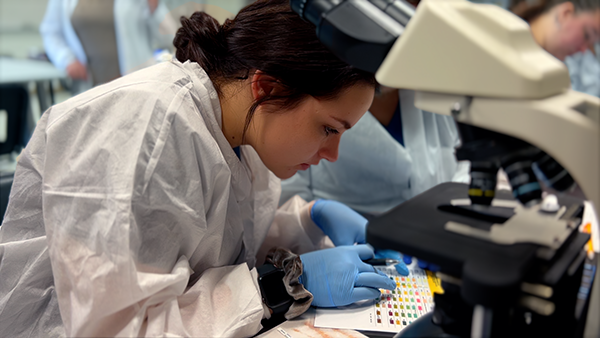Challenge yourself by saving lives in the Medical Laboratory Science field.
What is a Medical Laboratory Technician?
This program prepares students to become a medical laboratory professional who is qualified by academic and applied science education to provide service and research in medical laboratory science and related areas in rapidly changing and dynamic healthcare systems. The Medical Laboratory Technician will perform tests to analyze body fluids, tissue, and other substances in the following core areas: immunohematology (blood banking), microbiology, hematology, chemistry, urinalysis, and immunology.

Getting Started
What are my degree, diploma, and certificate options?
How Do I Pay For This?
Worry no more. With the lowest tuition in Kentucky, financial aid options, and a helping hand to guide you through the application process, WKCTC has you covered. WKCTC will help you reach your goals at a price that won't break the bank.
What Else Do I Need to Know?
Accreditation
The WKCTC MLT program is accredited by the National Accrediting Agency for Clinical Laboratory Sciences (NAACLS).
NAACLS contact information:
5600 N River Rd Suite 720
Rosemont, IL 60018
(773) 714-8880 Phone
(773) 714-8886 Fax
Email: info@naacls.org
Web Page: http://www.naacls.org
Length of Program
You can earn an associate in applied science degree in two years if you maintain full-time status.
This information should not be considered a substitute for the KCTCS Catalog. You should always choose classes in collaboration with your faculty advisor to ensure that you meet all degree requirements.

